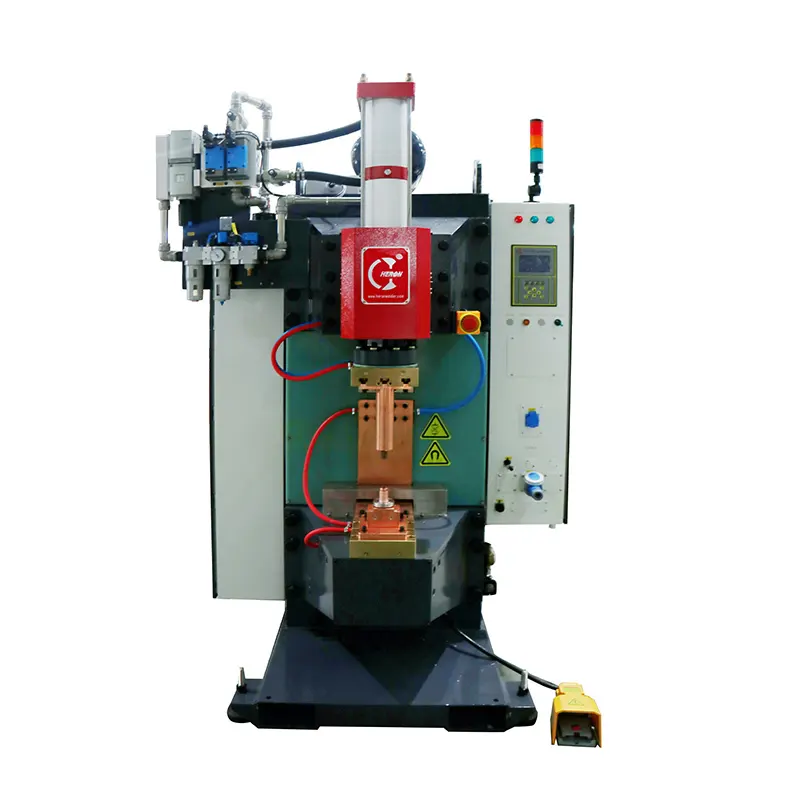What are the problems with overloading resistance welding equipment?
What are the problems with overloading resistance welding equipment? The temperature rise of the coil is usually related to the ambient temperature. The temperature is slightly lower in autumn and winter. Such environmental conditions are conducive to heat dissipation. Therefore, the load of the welder should be appropriately allowed according to seasonal changes. However, load use is prohibited in high-temperature weather conditions. Once it is overloaded, It will also cause equipment damage, but will accelerate the aging of the coil insulation, thus reducing the service life of the equipment.
Long-term load will also cause coil insulation damage, lead to coil short circuit, and lead to the possibility of scrapping the welding machine. Determining whether the equipment is loaded must be based on calculation, and cannot be judged lightly based on the welding current. Some welders believe that as long as the mechanical rating is exceeded, When the current is used, the equipment will be loaded, and when it is used below the rated current of the equipment, it will not be easy to load. In fact, this analysis is subjective because it ignores the impact of the equipment's load duration.
Problems after overload application: It is difficult to ensure the stability of the welding current and the stability of the welding quality of the product. It is easy to reduce the service life of each core component of the spot welding machine, which may greatly shorten the service life of the equipment. It is easy to damage the machine Key components, including thyristors, coils, inverters, etc., causing potential safety hazards in the use of equipment
Contact Person: Christina Liu
Tel: 86 20 87813325 / 86 20 87819588 / 86 20 87815075
Fax: 86 20 87813346
Address: No.63 Xin Yi Road, Guangzhou, Guangdong China 510990













